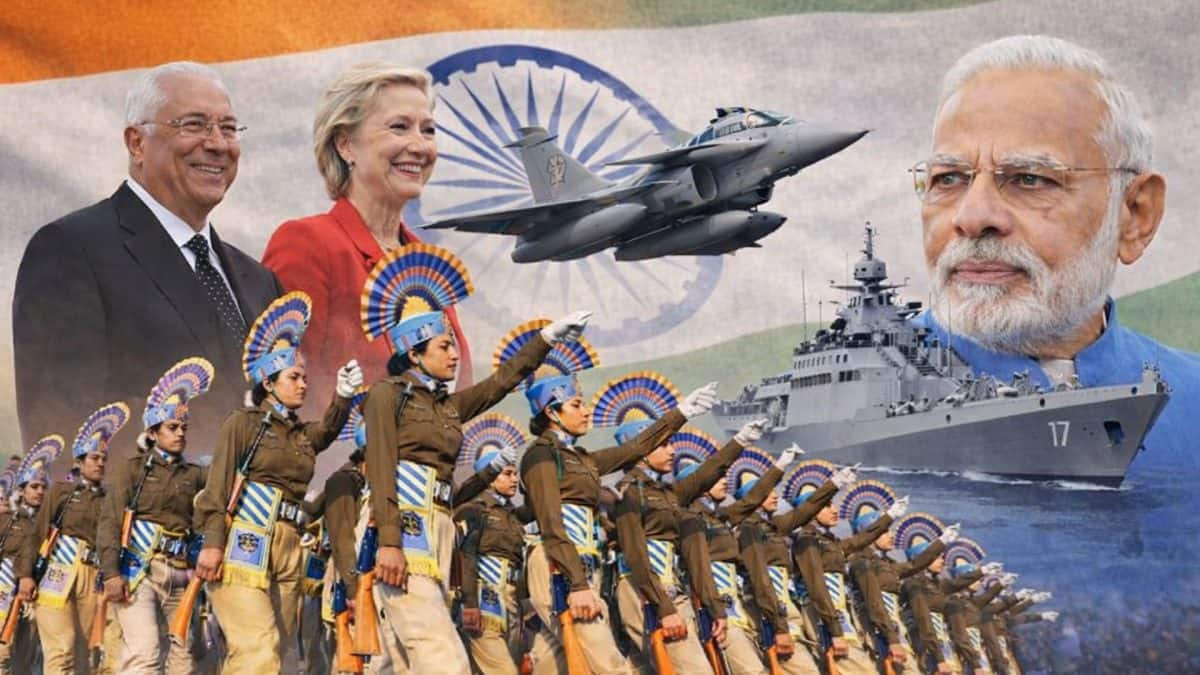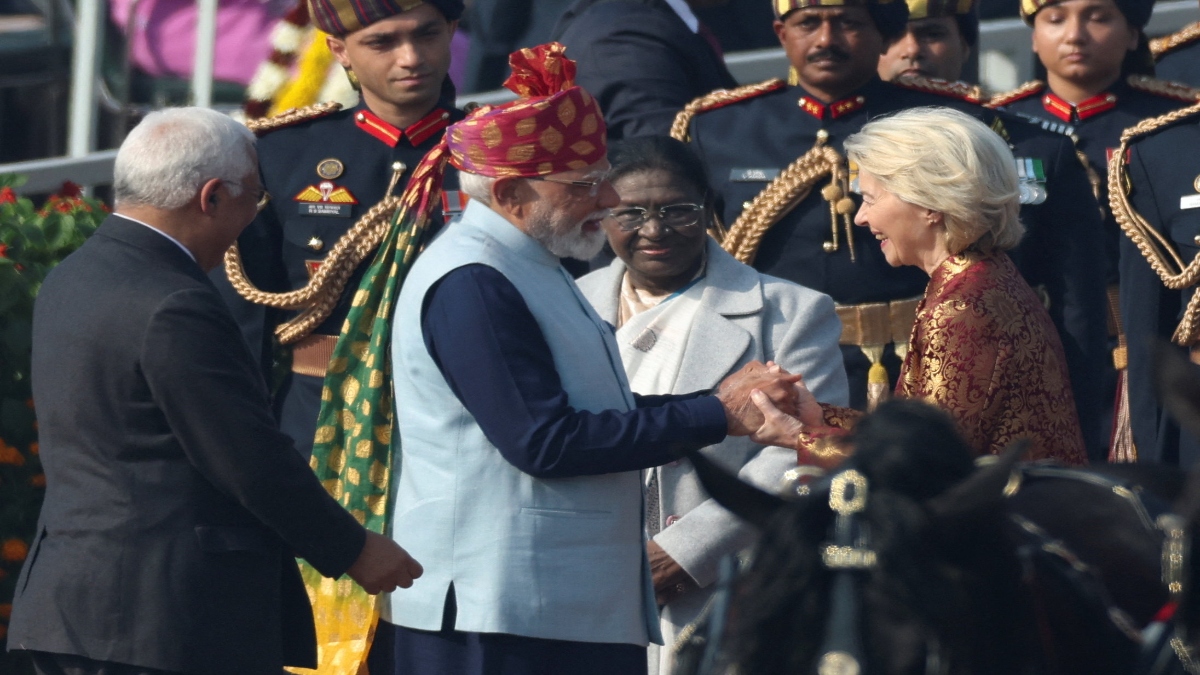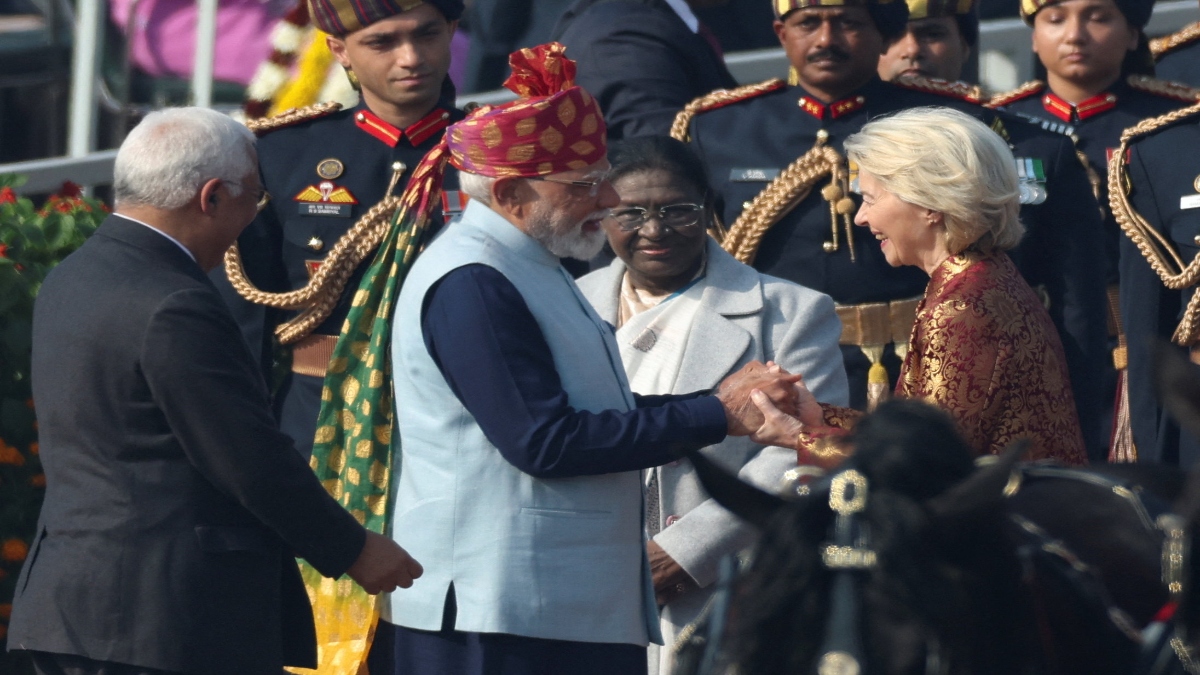The book “Satrangi Dastarkhwan” takes readers on a delightful exploration of Indian cuisine that extends beyond typical cookbooks. Edited by Sumna Roy and Kunal Ray, with translations by Vandana Rag and Geet Chaturvedi, this book is a fascinating journey through the interplay of history, culture, and geography that shapes India’s culinary identity.
India’s culinary identity is a harmonious mix of tastes influenced by soil, climate, culture, and various occupations. At the heart of Indian cooking is the artistic use of locally available spices, herbs, vegetables, and fruits, showcasing the country’s rich cultural diversity through a vibrant palette of flavours.
Religious and cultural influences, particularly from Hinduism and Islam, play a pivotal role in shaping Indian cuisine. The Columbian discovery of the New World brought in staples like potatoes, tomatoes, chillies, peanuts, and guava, enriching Indian cuisine.
What makes ‘Satrangi Dastarkhwan’ unique is its focus on the stories behind the food. Through the lens of ten personalities from various fields, readers gain a distinct perspective on the world of kitchens and food. Descriptions go beyond tantalizing taste buds, offering glimpses into the joys, sorrows, and reflections of life beyond the kitchen.
In these colourful pieces, eminent Bangla author Manaranjan Byapari (Shree Bhajhari Raghuni Ki Kathayen) shares his struggles and triumphs through food, while Leela Samson (Mujhe Khane Ke Kisse Yaad Hain, Vyanjan Banane Ki Vidhiya Nahin) and Neelam Mansingh Chaudhary (Amritsar Ka Amrit Bhoj) connect their dance and theatre journeys with their culinary preferences. Well known Journalist and writer Ashutosh Bhardwaj (Pandulipiyon Aur Bandukon Ki Dagar Par Rohu Machhli Aur Jalebi) explores the fascinating relationship between food and myths in Assam and Chhattisgarh, and Konkani Damodar Mavjo (Panvroti Ki Yatra Ka Jaika) emphasises the crucial role of bread in Goa’s cultural journey. Major vocalist Kalapini Komkali (Bhanukul Ka Rasaoi Rag) reminisces about moments with her iconic musician parents, Vasundhara Komkali and Kumar Gandharva, through Komkali meals.
Quick Reads
View AllJaya Jaitley (Rachne Walon Ke Sath), an expert in folk crafts and art, takes us from shared meals with weavers and craftsmen to the highlights of the handloom and art world. Writer and activist Amandeep Sandhu (Langar: ‘Kisan Nhi Toh Khana Nahi’ Andolan Ki Dhadkan) delves into the recent farmers’ movement and its connection to communal langar meals. Kalyani Dutta (Amritsar Ka Amrit Bhoj) Sandesh narrates her ancestors’ story through the wooden and clay moulds used to make sweets. Vandana Raag (Prasngvas: Dal, Bhat, Bhujiya) the book’s translator, shares her sentimental life experiences.
A standout feature is the experimental translation by Vandana Rag and Geet Chaturvedi, seamlessly blending regional Hindi with English. Vandana Rag, a renowned Hindi novelist, and Geet Chaturvedi, one of the most extensively read contemporary literary authors in Hindi, join hands as translators, which is kind of a new and welcome event. Their collaborative effort not only bridges linguistic gaps between Hindi and English but also infuses the text with a rich literary authenticity. They together contribute to the depth and finesse of the translation, ensuring that the essence and cultural nuances of the original work are artfully preserved in the English rendition.
When we read the book, it becomes apparent that Indian cuisine is more than a collection of recipes; it’s a journey through history, culture, and geography.
The history of Indian food is a story of adapting to needs and learning from various cultures. Some dishes were created to feed many people, while others were borrowed from different places. There are many fascinating stories about Indian food that not everyone is aware of. The book ‘Satrangi Dastarkhwan’ not only lets you savour the flavours of India but also discover the stories behind each dish shared by the contributors. It’s a unique curation in the world of culinary exploration. Editors Sumana Roy and Kunal Ray deserve applause for their efforts. This book truly stands out! It captures the hearts and minds of readers without unnecessary embellishments.
The author is a Bengaluru-based management professional, literary critic, and curator. He can be reached at ashutoshbthakur@gmail.com. Views expressed in the above piece are personal and solely that of the author. They do not necessarily reflect Firstpost_’s views_
Read all the
Latest News,
Trending News,
Cricket News,
Bollywood News,
India News and
Entertainment News here. Follow us on
Facebook,
Twitter and
Instagram.


)

)
)
)
)
)
)
)
)



